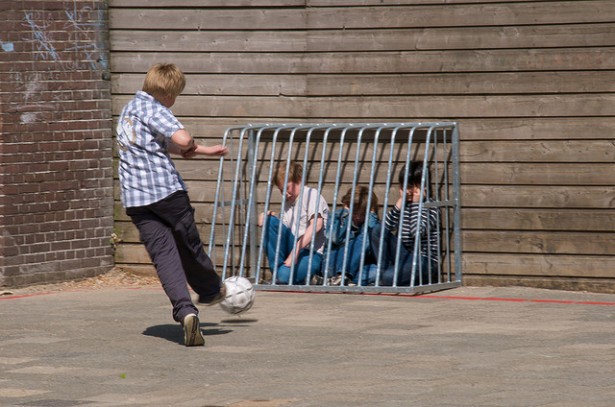“The difference between the almost right word and the right word is really a large matter—it’s the difference between lightning and lightning bug.” – Mark Twain
In the spirit of Mark Twain, let’s begin with dictionary definitions –
ed·u·ca·tion – noun
- the imparting and acquiring of knowledge through teaching and learning, especially at a school or similar institution
- the knowledge or abilities gained through being educated
- training and instruction in a particular subject, for example, health matters
- an informative experience
- the study of the theories and practices of teaching
learn·ing – noun
- knowledge acquired by systematic study in any field of scholarly application
- the act or process of acquiring knowledge or skill
Education sounds like something done to or for you; educators have something that you don’t have, and you need to go through them to get it.
Learning , on the other hand, sounds like an inside job – no one can do it for you and you can’t do it for someone else; it’s up to each individual to learn.
Seems to fit here: “You can lead a horse to water but you can’t make her drink.” But if you happen to find a horse that is thirsty – that is quite a different matter!
What if kids – students – are naturally learning thirsty?
Isn’t that where those clouds of early child questions come from? Why is the sky blue? What is that? Why do I have to do that? How does that work? What happens if I touch my little brother in the back seat of the car? Does touching with my elbow count? Or my toe? Are we there yet? …
Observe your little learning machine in full action!
And there’s yet another saying that applies here: “To appear masterful or powerful, ride the horse in the direction it is going.”
In Jiu-itsu and Tae Kwan Do martial arts, one learns to use the opponent’s momentum to their advantage. Don’t stop or block your opponent’s movements – embrace their momentum and allow them to sweep past you harmlessly, effortlessly in a direction you intend.
So, what’s the point? What is a take-away for kids, parents, teachers?
- “Education” may or may not always promote “learning.”
- “Education” may not always be optimal for, or supportive of “learning.”
- “Learning” occurs in a different domain.
- Recognizing this can have a desirable outcome for the child, the parent, the teacher, the system, business, society at large.
- Shifting the conversation and focus could empower the miracle and gift that each individual is, be she parent, teacher, or child.
Compare this with what we complain about now:
- Missed opportunities for both children and for society
- Increased and increasing costs of incarceration and recidivism
- Family, personal, and institutional heart-burn and head-ache
- Having to pay for the same thing over and over: didn’t get it by 3rd grade; didn’t get it in high school; still trying to get it via UNM/CNM remedial whatever
- Employers having to “fix” new hires before they can get meaningful work done
- Burnt out superintendents, principles, teachers, kids, parents
Maybe purposeful shifting orientation from “a little more school education” to “a little more kid learning” might be worth more than a few little trials. My guess is, the best teachers already know and are doing this. What do you think? How do we support making such a shift happen?

